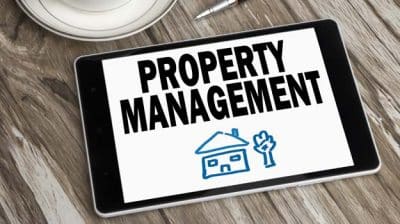Have you considered becoming a property manager but are unsure what the job entails? What are the duties of a property manager?
If you’re thinking about a career in property management, keep reading. We hope the list of responsibilities below will assist you in determining whether this is the right job for you. We’ll also see the need for property management companies in this post.
What is Property Management?
Property management is the administration of residential, commercial, and industrial properties such as apartments, detached houses, condominium units, and shopping malls. It usually entails administering property that belongs to another person or entity. The property manager works on behalf of the lender to maintain the property’s integrity while generating revenue.
How does Property Management Work?
Property managers are in charge of everything that happens daily in a rental property. They should be familiar with the real estate industry in which the rental works, such as industrial property or housing.
The property manager is then responsible for ensuring that the owner’s objectives are realized through handling rent, tenants, upkeep, budgeting, and rental property records. They must also be well-versed in state and federal regulations governing the legal ways for screening tenants, handling security deposits, terminating leases, conducting evictions, and adhering to property safety standards.
Some states require property managers to be licensed real estate brokers for these reasons. If this is the case, a property owner will need to hire a broker to guarantee that their property is legally managed.
Other states let managers be licensed in property management rather than as realtors. Some do not require any licensure at all. Property managers have a variety of expertise and experiences in addition to their licensure.
Property Management License
To work as a property manager, you will typically require a property management license or a real estate broker’s license. Property managers with a property management license can operate in real estate and execute business-related activities in this career. The particular license requirements will vary depending on where you live and work. Not only will you most certainly need a license, but obtaining one will also provide you with credibility in your area.
A property management license is available from state governments, local governments, or real estate boards. You must be at least 18 years old and have a high school diploma to receive a property management license; however, many employers prefer property managers to have a bachelor’s degree in business, real estate, or a similar profession.
Particular Considerations
The qualifications for property management licenses differ per state.
Property management companies must be regulated by the local real estate board in most jurisdictions. Thus property owners must ensure that the company they engage is properly licensed.
Property managers in Florida, for example, are needed to hold real estate broker licenses to function in their state.
This is since some of their obligations are classified as real estate activities. Property managers with a real estate broker’s license can list rental properties in the multiple listing service (MLS). They also advertise the properties using typical real estate marketing strategies. A real estate broker’s license also allows the property management business to post a real estate board lockbox on a property’s door so that other licensed agents can display the property.
Property managers in Florida are also required to have a broker’s license if they deal with rentals or leases and collect a commission for their services.
Property managers who manage their properties in the state, on the other hand, do not need a license.
In Massachusetts, managers are not required to have a broker’s license.
This is because certain real estate activities, such as listing and leasing properties, may be secondary to the property manager’s primary obligations.
Property Management Companies
Property management firms are companies that employ property managers. When property owners do not have the time, skill, or capability to manage their properties themselves, they might employ a firm to do so. Several property management companies provide real estate expertise throughout the United States.
The Need for Property Management Companies
Property owners hire property management companies for a variety of reasons. Some landlords may have a large portfolio of rental properties but lack the skills or time to maintain them and deal with tenants. Some property owners are just interested in having rental properties and earning from them. In this case, they hire expert real estate managers.
Property management companies are also used by absentee landlords. Owners of properties that participate in affordable housing initiatives frequently use property management companies. Participating in such programs necessitates an understanding of federal requirements, which some owners lack, despite their desire to benefit from affordable housing schemes.
The rental market is experiencing increased housing demand as a result of mass migration to these locations. Property managers are leveraging rental trends such as communal living and co-living spaces in India.
The majority of rental homeowners lead a hectic working-class lifestyle. Finding a balance in the stress of business life while managing assets can be difficult. As a result, there is an urgent need for property management companies to act to address the housing scarcity and rental property management issues by managing and renting these assets as soon as possible.
Who Is a Property Manager?
Property managers are people who specialize in ensuring that a property is run following the owner’s instructions, whether those instructions be financial or focused on providing appealing living conditions, or both.
Instruction can take various forms—for example, corporate property owners may release purpose and vision statements for their properties, whereas individual owners may provide verbal guidance on their property’s goals.
The manager ensures that responsible renters occupy the property, that payments are collected on time, that budgets are followed, and that the rental is adequately maintained.
Owners of many rental homes will almost certainly want expert property management assistance. Property managers can help with this.
Types of Property Managers
Commercial property managers are experts in commercial real estate. These managers may be well-versed in industrial or administrative buildings.
Apartment complexes are common facilities managed by multi-family property managers. These specialists must have excellent customer service skills and the capacity to de-escalate situations, in addition to performing the typical duties of a property manager.
Property managers for single-family homes work for real estate investors who hold their investments and rent them out for extra revenue. These types of investors typically buy property in locations with a high rate of residential turnovers, such as a military community, where people tend not to buy homes.
They appoint property managers to ensure that all aspects of the property are managed and that the property’s value is maintained while it is occupied.
Responsibilities of a Property Managers
The number of obligations assigned to a property manager is determined by the terms of the contract between them and the landlord. Some landlords may merely want a property manager to collect rent. Others may want a property manager to handle all aspects of their property. The following are some of the various property management responsibilities:
- Understanding the laws and regulations governing landlord-tenant relationships.
- Handling maintenance and repair requests.
- Property marketing
- Tenant management
- Rent administration
- Supervising other workers
- Budget management.
- Tax administration.
#1. Understanding landlord-tenant rules and regulations
To be an effective property manager, you must be well-versed in both state and federal landlord-tenant legislation. This includes knowing how to screen a tenant, evict a tenant, and terminate a lease, among other things. The better you grasp these regulations, the more fair and effective you will be as a property manager.
#2. Handling maintenance and repair requests
One of the most important responsibilities of a property manager is to ensure that the property is well-maintained. Property managers must respond to maintenance requests and repairs in a timely way to guarantee a habitable and safe environment. This includes dealing with water leaks, exterminators, trash removal, and other tasks.
Property managers can complete these duties themselves or employ a third party, such as a plumber or electrician, to do so. The better a property manager manages maintenance and repairs, the happier the renters will be, and the property will be more appealing to future tenants.
#3. Property Marketing
One of the primary reasons landlords use property managers is to assist them in marketing their property to potential new renters. This entails photographing the property and listing it on various mediums, such as real property websites. The better the marketing effort, the more likely it is that a property will generate a lot of attention. If a property manager receives a lot of interest in it, he or she may afford to be pickier when it comes to finding the ideal tenant.
#4. Tenant Management
Property managers are frequently faced with managing multiple renters. This entails selecting the correct tenant for a landlord’s property and screening them via numerous background and credit checks to verify they’ve chosen the right applicant (s).
Furthermore, property managers will most likely be entrusted with all tenant leases. They are also in charge of tenant crises, move-outs, and evictions. A property manager must inspect the property for damage when dealing with a move-out. The property manager can decide how much of the tenant’s deposit will be refunded to them based on the condition of the property.
After a tenant vacates, they must clean the unit, make any required repairs, and begin promoting the unit again. If a tenant breaks the lease, the property manager is responsible for initiating the eviction procedure.
#5. Rent administration
One of the primary roles of a property manager is to manage the rent. This entails determining a rental rate for a property. To do so, the property manager must evaluate the property, its location, and the current market. When a renter moves in, they will be responsible for collecting rent on the property on a specific day and through their preferred media. A property manager may also adjust the rental fee as long as they follow state and local legislation.
#6. Managing and supervising other staff
If a property has other employees, such as a security guard, the property manager is in charge of overseeing them. This includes pay negotiations and, if necessary, termination.
#7. Budget Management
Property managers may also be in charge of the property budget and other vital information. This includes considering the property budget, managing all tenant agreements, complaints, repair expenses, and other factors.
#8. Managing Taxes
Finally, landlords may require the assistance of a property manager while submitting taxes. In some circumstances, the property manager may be responsible for filing the property taxes.
A Real Estate Property Manager’s Responsibilities
The property manager or management business is responsible for four primary areas of duty in real estate property management:
- Financial and marketing
- Occupancy and Tenant
- Facility
- Management of Administration and Risk
The property manager collaborates with the owner to maximize the property’s return on investment through the efficient performance of these four functional areas of duty. The property management business acts in the owner’s best interests by maintaining the property, keeping it occupied with renters, collecting rentals, budgeting upgrades, and keeping records.
When the scope of management activities and record-keeping is fully appreciated, many real estate professionals have changed their thoughts about property management. It is unquestionably a niche for the more thorough and responsive members of the profession.
#1. Financial and marketing
Understanding operating expenses and budgeting is essential in real estate property management. Based on this information, appropriate rental rates are established, which are balanced by the existing market and what it will support in terms of rentals. It is necessary to have a thorough understanding of the area as well as competitive rental properties.
To maximize occupancy and rental rates, the property manager may offer marketing campaigns, special promotions, and other advertising techniques to the owner. Financial reporting to the owners must be done regularly. Understanding financial accounts, profit and loss, income taxes, and budgeting are all critical for the property manager.
#2. Occupancy and Tenant
Understanding the renters’ needs is critical for this duty. Getting them to move in is only the first step. The property manager must then reply to their demands, monitor their activities concerning the lease conditions, collect rent on time, and constantly analyze the tenants’ contentment with the property’s amenities in comparison to those of rival rental homes in the region. This duty also includes the undesirable task of eviction for violations or nonpayment.
#3. Facility management
Property management also includes the physical management of structures and outdoor areas. The physical property includes landscaping, wiring, plumbing, a roof, walls, appliances, and much more. The property manager is responsible for maintaining relationships with contractors and repair businesses, budgeting capital expenditures, and overseeing the quality of all repairs and maintenance.
This role is related to the financial component because some upgrades may necessitate major capital expenditures and plan for them. It is related to tenant and occupancy management since well-maintained properties are vital for tenant retention.
#4. Management of Administration and Risk
This is the property management function’s files and records section. Real estate property management activities are regulated by the federal, state, and local governments. For all of them, certain reporting criteria must be completed. Accounting and tax records must be meticulous.
For liability considerations, all activities and tenant interactions must be recorded and kept for specific periods. Though connected to financial functions, most states have highly strict standards for the management of cash provided by tenants for disbursement to owners.
Property management accounted for the vast majority of consumer complaints and real estate commission disciplinary actions in the state of New Mexico. Unlike most real estate transactions in which you represent one side of the transaction, property management entails working with both property owners and tenants. Property management was also responsible for the most license suspensions in the state of New Mexico. Dealing with owners and tenants adds complexity and dynamics to the risk.
There is a lot more complication, including a separate trust account in New Mexico for receiving, maintaining, and disbursing rents and paying costs. Even selecting repair contractors might lead to complaints from owners that you have a bias that boosts their maintenance prices. A tourist region with a large number of rental homes and condos may appear to be an ideal location for a property management practice. However, after researching the problems, you may decide that you would prefer to take longer time off.
Those thinking about specializing in real estate property management should be aware of the standards and confident in their ability to meet them all with efficiency and delight. It’s not as simple as selling a house.
Software for Property Management
The five most common real estate property management software packages are listed alphabetically below.
#1. Appfolio
4.6 out of 5 stars given by users
1,600+ reviews
Property managers and landlords can use AppFolio property management software to sell, automate, and manage tasks linked to their apartments, residential properties, commercial property, student housing, or other property.
Vacancy and rent tracking, tenant screening, property listings management, cash flow management, landlord insurance tracking, website creation, a rent comparison tool, automatic billposting, paperless work order production, and report customization are all capabilities for property owners. Landlords and real estate investors can use AppFolio to list their rental property, and any prospective tenant can submit an online application.
Tenants can utilize the online portal to securely pay rent through an online payment channel, connect with the property owner, submit a maintenance request, schedule a property inspection, and sign up for renters insurance.
AppFolio also has a mobile app that features online owner and renter portals, online applications and leases, online payments, built-in screening, maintenance requests, mobile inspections, bulk text messaging, accounting and reporting, and more.
AppFolio was named an Emerging Favorite in Capterra’s 2021 Shortlist report for real estate property management software, indicating that companies received good marks for customer satisfaction.
AppFolio’s pricing is broken down by unit and month.
#2. Buildium Property Management Software
4.5 out of 5 stars from users
1,500+ reviews
Buildium is a cloud-based property management software that assists landlords of residential and condominium buildings with online rent and payment, vacancy management, and maintenance cycles, and accounting.
During tax season, users may track company spending, make and accept online payments, and submit 1099s.
Buildium’s rent cycle features include tenant and lease tracking, full general ledger accounting, automated rent, and fee reminders, and on-demand reports. Rent collection can be automated for property owners, and property managers can receive online payments using Buildium’s tenant site.
Sending vacancies to Buildium’s listing partners (Zillow, Trulia, Craigslist, etc.) as well as Buildium’s free marketing website is the first step in managing the vacancy cycle. The program features an application system that allows users to accept rental applications, screen tenants, and save documents in the cloud. When applicants complete Buildium’s online rental applications, the information is instantaneously saved to the Buildium tenant database.
Buildium has a resident portal where you may process maintenance requests and payments. It also assists users in the creation of their websites to host rental listings.
Buildium was named a Top Performer in our 2021 ShortList report, which indicates it was one of the items with the highest popularity and user ratings.
Buildium’s pricing model is broken down by the number of units and can be paid monthly or annually, with annual costs being higher than monthly installments. There is also a free trial available.
#3. Cozy Property Management Software
Cozy has a user rating of 4.5 out of 5 stars.
30+ reviews
Cozy is a property management tool that allows owners to display properties, check potential tenants, and receive rental payments all from one centralized dashboard. The tool assists landlords in tracking spending for each of their properties, categorizing them for tax purposes, and attaching electronic receipts to matching expenses.
Cozy assists property owners in creating and posting unique listings on real estate websites such as Doorsteps.com and Realtor.com, complete with property photos, lease terms, amenities, and pet regulations. Property owners can use the rent estimate tool to set rent rates that are comparable to nearby properties, price benchmarks, and neighborhood trends.
Landlords can also invite applicants and evaluate their work status, income, and rental history all from within the software.
Agents can use the maintenance module to alert tenants on the status of repairs or contractor visits. Also, tenants can request repairs by giving specific details, images, and videos.
Cozy was named an Established Player on our 2021 Shortlist. This indicates that it is a well-known and popular product in the field.
Pricing is offered on a monthly subscription basis.
#4. ManageCasa Property Management Software
5 out of 5 stars from users
There has been one review.
ManageCasa is a property management tool created primarily for property managers, associations, and landlords.
Landlords may use ManageCasa’s core platform to streamline move-ins, generate and store digital lease agreements, collaborate on maintenance tickets and shared files, and run and share all of their critical financial data with rental owners.
Landlords can collect payments immediately through the program, eliminating the need for handwritten checks and bank visits.
Their customer marketing website subscription enables landlords to build integrated websites to sell their businesses and engage with applicants, tenants, and other owners.
Once onboarded, tenants and rental owners can utilize their user interfaces to create and handle tasks and maintenance requests, upload and securely store documents, and discuss issues.
Pricing: Cozy offers a tiered model that is free for up to three properties. Thus, it allows users to test the program without having to pay anything upfront.
#5. TenantCloud
4 out of 5 stars from users
100+ reviews
TenantCloud is a cloud-based property management solution aimed at landlords, property managers, and real estate professionals. The software includes capabilities for property management, tenant management, accounting management, and marketing.
It has a dashboard where a landlord may enter new transactions, tenants, properties, work requests, messages, or applications. Total occupancy, lease expiration dates, current property postings, payments, and outstanding rent payments are all available to users. Landlords can also see properties in a list style, complete with photographs and financial data for income, expenses, net cash flow, and outstanding amounts.
TenantCloud allows customers to browse rental applications, which include contact information as well as the status of each rent amount. Property managers can also send direct messages to tenants to address concerns. All users receive assistance through an online portal.
TenantCloud was also named an Established Player on our 2021 Shortlist.
TenantCloud is charged on a monthly subscription basis for a set number of users.
What is the role of a property manager in long-term planning and property improvement?
He or she is responsible for developing and implementing long-term plans for the improvement and maintenance of rental properties. This includes conducting regular assessments of the property, identifying areas for improvement, and making recommendations for upgrades or repairs. The property manager will also develop budgets for these improvements and ensure that they are carried out in a timely and cost-effective manner.
How does a property manager handle communication with owners and tenants?
A property manager acts as the primary point of contact between property owners and tenants. The property manager is responsible for ensuring that owners are informed of all important updates and changes related to the property, and that tenants receive prompt responses to their questions and concerns. The property manager must also communicate effectively with both parties to resolve any conflicts or disputes that may arise.
How does a property manager handle rent increases and renewals for tenants?
He or she is responsible for monitoring local market trends and determining appropriate rental rates for properties. The property manager will inform tenants of any rent increases in a timely manner and handle the negotiation and renewal of tenant leases. The property manager will also ensure that all rent increases and lease renewals are carried out in accordance with local laws and regulations.
What is the role of a property manager in local, state, and federal regulations for rental properties?
A property manager must be knowledgeable of local, state, and federal laws and regulations related to rental properties. The property manager is responsible for ensuring that rental properties are in compliance with all relevant laws, including fair housing regulations, health and safety codes, and zoning laws. The property manager will also ensure that all necessary licenses and permits are obtained and maintained for the property.
How does a property manager handle insurance and liability issues for rental properties?
Whoever it is, is responsible for ensuring that rental properties are adequately insured and protected against potential liability issues. The property manager will ensure that the property is covered by the appropriate insurance policies, including liability insurance, and will handle all insurance claims related to the property. The property manager will also ensure that the property is in compliance with all relevant health and safety codes to minimize potential liability issues.
What is the role of a property manager in budgeting and financial management for rental properties?
A property manager is responsible for creating and managing budgets for rental properties. This includes preparing regular financial reports for property owners, monitoring income and expenses, and ensuring that all bills and payments related to the property are made on time. The property manager will also handle rent collection and ensure that all rental income is properly accounted for and deposited in a timely manner.
Property Management FAQ’s
Is property management a good career?
Property Management is not commonly viewed as a desirable job, but it is an amazing way to begin a fantastic career in the Real Estate market and one that can open many doors along the way.
What is full property management?
Full property management provides the same services as tenant find + rent collection, but they will also manage the day-to-day running of the property while a tenant is living there, including repairs and maintenance, as well as returning the tenant’s deposit once they’ve ensured that all of the inventory is still present.
What makes a good property manager?
They must be well-organized and skilled communicators for things to function smoothly. Property managers can manage and reduce disagreements, address property-related issues quickly, and liaise with the property owner on essential things promptly with good communication.
- Key Money Definition: What is Key Money? (+ Quick Guide)
- RENTAL AGREEMENT: Forms, Templates & Best US Practice (Detailed Guide)
- Property Management Business: All You Need to Start From Scratch (+ a Workable Model)
- Property Valuation: How to Value Your Real Estate Investment & Properties.
- Landlord Insurance Cost: Guide To Landlords Insurance Cost In UK






